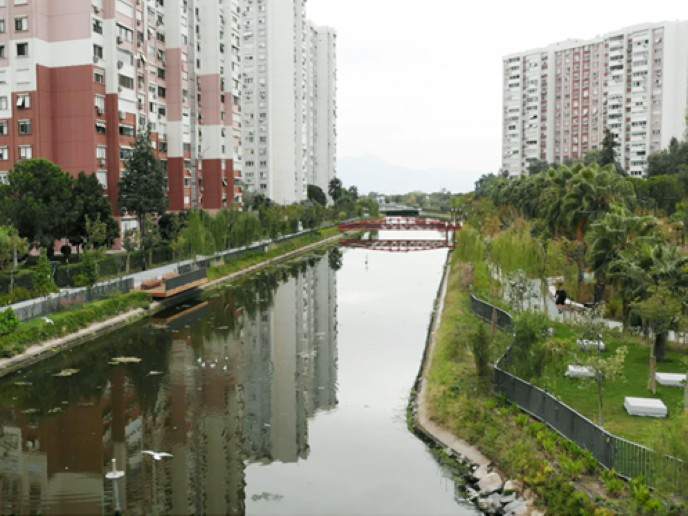Anticipate and respond to Europe’s water-related extreme events
Future hydrological extremes may be very different from today’s reality and difficult to predict. They will have important implications for the water sector and the design of water management practices. “There’s an urgent need for actionable research to guide decisions,” says Bart van den Hurk, coordinator of the EU-funded IMPREX project. “We don’t only want to know what’s going on with our climate, we also need to know how to respond and act.”
Enhancing today’s routine weather prediction and climate change models
The project supported the reduction of Europe’s vulnerability to hydrological extremes through improved understanding of the intensity and frequency of future disrupting events. It provided an alternative and tangible way to depict climate change consequences by focusing on past events put in a future climate context. “Our guiding principle was ‘learn from today to anticipate tomorrow’, and pay much attention to near-term climate predictions, that is, in the next few months or season,” notes van den Hurk. Project partners developed innovative approaches, tools and 10 practical case studies to help improve the ability to anticipate and respond to future hydrological extreme events. They demonstrated the successful uptake of innovation in practice and provided recommendations on decision-making and integration into EU policy frameworks. The IMPREX team analysed and improved current state-of-the art forecasting systems and management procedures. It harmonised the requirements for daily operations and long-term planning, providing evidence-based solutions for improved management support. Team members also designed innovative risk assessment concepts for hydrological extremes that respond to the limitations of existing methods and assessment practices.
Toolkit for policymakers and decision-makers
A brochure presents the project’s major outcomes. It includes sector-specific factsheets that outline innovative solutions developed and applied within flood risk assessments, hydropower, water transport, urban water supply, drought management and global water economy. Case studies illustrate how climate information was customised to meet different stakeholder needs, providing guidance on current methods and innovative tools. Lastly, three policy briefs and a position paper translate promising tools and relevant topics and approaches for various stakeholders. The brochure also presents a complete overview of the main achievements. One such notable finding is an upgrade in forecasting capabilities for riverine shipping transport, extending the forecast range and improving ship management options to generate clear financial revenue. The consortium developed monthly to seasonal pre-operational forecasts for optimal long-term decision making for the port of Hamburg. As the port is located in the delta of a large river, this makes it particularly prone to impacts from the interaction of offshore tidal effects and inland hydrological conditions. "Our goal is the continuous and long-term utilisation of the forecasting system. The system will be even more important in future in order to be prepared for increasing occurrence of low-flow periods," explains Dr.-Ing. Ingo Entelmann of the German Federal Waterway and Shipping Administration. Another example is an exploration of the potential gain in hydropower value production by using adequate forecasts, setting a benchmark for the total effect of improved forecasts on hydropower revenues. A third example is an analysis of the global connection of European food production, highlighting the vulnerability of Europe’s food production sector to adverse climate conditions in remote areas. Other key results include an update of water shortage risk management procedures and a forecast system for water turbidity in drinking water treatment plants. An e-guide showcases approaches, tools and methods for decision-making in the water sector. Users can find short-range information, seasonal forecasts and climate predictions. “In close cooperation with a broad range of water sector stakeholders, IMPREX developed approaches and tools that are used today to prepare for future hydrological extremes and climate variability,” concludes van den Hurk. “This will lead to increased uptake and application of the project’s solutions, while recognising the diversity of water-related challenges within the EU.”
Keywords
IMPREX, water, climate, hydrological extremes, water management, water-related extreme events, climate







